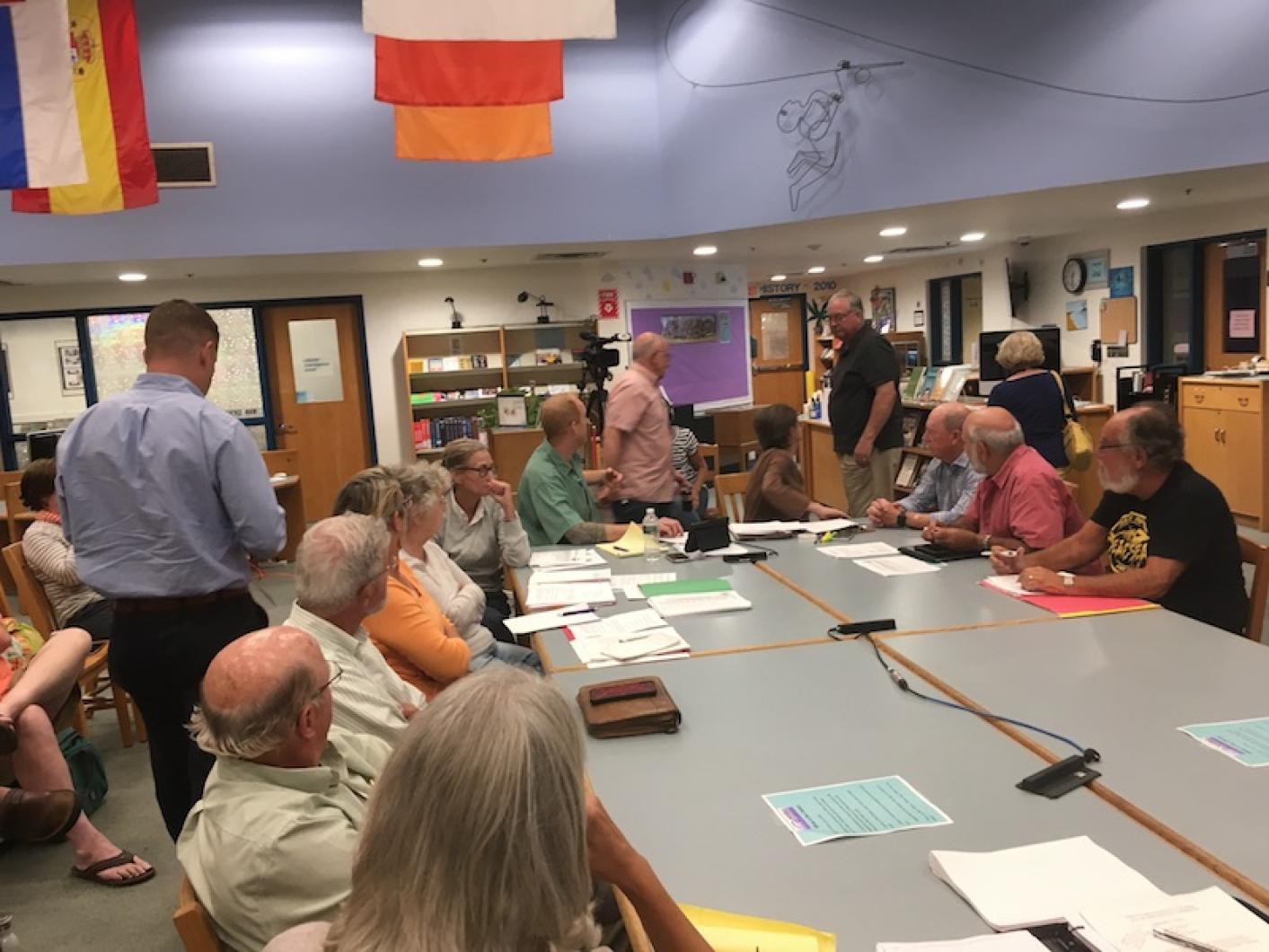An emerging dispute among Island towns over how the regional high school is funded came to a head this week as school administrators sought to move forward on plans to renovate or replace the 60-year-old campus.
The issue came to the fore last spring, when the town of Oak Bluffs refused to contribute to a $1.4 million feasibility study on the high school campus, citing a regional funding formula that they said disproportionately burdens them.
Selectmen in Chilmark and Edgartown vented frustration over the issue at meetings this week, and Edgartown representatives staged a walk-out at an all-Island finance committee meeting Wednesday in protest.
But in a step toward a dialogue, finance committee leaders from every town except Edgartown voted in favor of hiring a consultant from the Massachusetts Association of Regional Schools to bring all the parties to the table and potentially craft a new funding agreement.
“They would come with background working with other districts and other regional agreements that I feel would be very beneficial to this group and this discussion,” superintendent of schools Dr. Matthew D’Andrea said of the consulting group. The high school is seeking funding support for a campus overhaul from the Massachusetts School Building Authority (MSBA). The state agency would ultimately require unity from all six towns if it decides to subsidize the project.
At issue is the method used to divide up costs for the regional high school, and whether that method should apply to a major building project. Currently, all high school costs are apportioned based on enrollment, meaning that towns with more high school students enrolled pay more than towns with fewer students.
In the 2019-2020 school year, towns paid $29,285 per student, according to school finance director Mark Friedman. Tisbury payed $5.3 million. Edgartown and Oak Bluffs each paid $5.1 million. West Tisbury paid $2.5 million. Chilmark paid about $900,000, and Aquinnah paid about $340,000.
Some, including leaders in Oak Bluffs, have argued that enrollment should not be the sole factor considered. They argue that property valuations (which are much higher in up-Island towns) should be taken into account in part because the building serves more of the community than just high school students.
Some have also argued that building and maintenance costs should be divided differently than operational costs.
“This is a community building that evidently holds a lot of activities including in the [Performing Arts Center] that all of us are using,” said Oak Bluffs finance committee member Maura McGroarty. “Just understand that this building is used until 9 and 10 o’ clock at night by the entire Island.”
But leaders in Edgartown and Chilmark were vocal this week in their opposition to reconsidering the existing funding formula.
Representatives from Edgartown abruptly left Wednesday night’s meeting in an apparently coordinated protest when an Oak Bluffs finance committee member said the town wanted to use a so-called equalized property value formula.
“Enrollment is how costs should be apportioned,” said Edgartown selectman Arthur Smadbeck at a meeting last week. “This sudden desire to change the formula to benefit one or two towns is hurting our high school, and it is hurting all regional services really because it is demonstrating to the Island that agreements are not to be followed. And I would really urge the people involved . . . to get their eye on the ball.”
There were similar comments in Chilmark at the selectmen’s meeting Tuesday night. “It’s hard to believe that our sister towns would think that the voters of Chilmark would agree to pay that kind of money on a per-pupil basis,” said selectman Jim Malkin. “Waiting for Chilmark to pay over $100,000 for a student in the high school, I think, is a fool’s errand.”
Meanwhile, the $1.4 million high school feasibility study, considered the first step in a renovation process, will need to be re-voted at town meetings in all the Island towns, Mr. D’Andrea said. But he also said the study does not need to be approved in order to gain funding from the MSBA.
“We will hear from MSBA in December,” Mr. D’Andrea said. “There’s not a sense of urgency to get [approval for a feasibility study] done prior to December. Having us unified as an Island certainly is helpful, but that vote is not necessary in order for us to be accepted into the program.”
Meanwhile, Mr. D’Andrea estimated that consulting services for help with the funding formula would cost between $25,000 and $50,000. The source of the funds was not immediately identified. The use of consulting services is also on the agenda for Monday’s regional high school committee meeting.
“They have successfully brought adversarial towns together to solve the problem,” said West Tisbury finance committee member Doug Ruskin, who backed using the consultants. “Why reinvent the wheel? Why suffer through it all ourselves?”




Comments (10)
Comments
Comment policy »